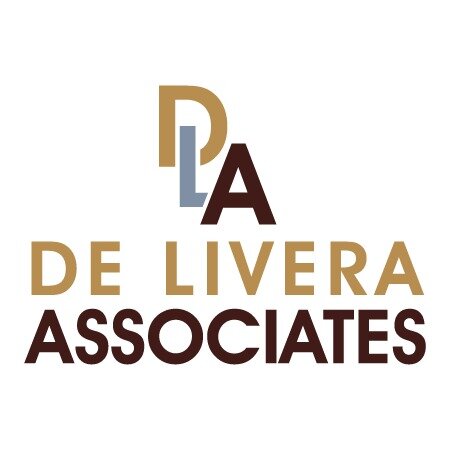Best Bankruptcy & Debt Lawyers in Sri Lanka
Share your needs with us, get contacted by law firms.
Free. Takes 2 min.
Or refine your search by selecting a city:
List of the best lawyers in Sri Lanka
About Bankruptcy & Debt Law in Sri Lanka
Bankruptcy and debt management are crucial aspects of financial law in Sri Lanka, aimed at aiding individuals and businesses struggling with financial distress and insolvency. The legal framework provides mechanisms for restructuring debts, protecting creditors' rights, and facilitating the fair distribution of a debtor's assets. Through bankruptcy proceedings, debtors can gain relief from overwhelming debts and take steps toward financial recovery, while creditors can ensure equitable treatment of their claims.
Why You May Need a Lawyer
Legal advice is often indispensable when dealing with bankruptcy and debt issues in Sri Lanka. Common situations where you might require legal assistance include:
- Filing for bankruptcy protection to manage unmanageable debts safely and legally.
- Negotiating with creditors to reach settlements or payment plans.
- Understanding your rights under the Insolvency Ordinance and related laws.
- Preventing foreclosure on a mortgage or repossession of assets.
- Discharging or reordering debts through court proceedings.
- Restructuring company debts to avoid liquidation.
Local Laws Overview
Sri Lanka's legal system concerning bankruptcy and debt comprises several key statutes, most notably the Insolvency Ordinance. Key aspects include:
- The Insolvency Ordinance: Governs individual bankruptcy proceedings and includes provisions for voluntary and involuntary petitions.
- Corporate Restructuring and Winding Up: The Companies Act provides for restructuring and winding up companies that cannot meet their financial obligations.
- Debt Recovery Laws: Include procedures and rights for the recovery of debts and enforcement of securities.
- Debt Conciliation Ordinance: Facilitates amicable settlements between debtors and creditors.
Frequently Asked Questions
1. What is the process of filing for bankruptcy in Sri Lanka?
To file for bankruptcy in Sri Lanka, an individual must submit a petition to the High Court. If accepted, the court appoints a trustee to manage the debtor's estate for creditor benefit.
2. Can a company be declared bankrupt in Sri Lanka?
Yes, companies can be subjected to winding-up proceedings under the Companies Act if unable to pay their debts.
3. How does bankruptcy affect my credit score?
Bankruptcy negatively impacts your credit score, making obtaining loans and credit more difficult until you rebuild creditworthiness over time.
4. Can all types of debts be discharged in bankruptcy?
Not all debts can be discharged. Certain obligations like fines, student loans, and alimonies may survive bankruptcy proceedings.
5. How can I prevent creditors from seizing my property?
Filing for bankruptcy can provide an automatic stay on asset seizures. Negotiating settlements or restructuring debts can also help.
6. What role does a trustee play in bankruptcy?
The trustee administers the debtor’s estate, liquidates assets if necessary, and distributes the proceeds to creditors according to legal priorities.
7. Can creditors object to bankruptcy filings?
Yes, creditors may contest a bankruptcy petition if they suspect fraud or other irregularities.
8. Are there alternative options to bankruptcy for debt relief?
Yes, alternatives include negotiating directly with creditors, seeking debt conciliation, or entering into a debt restructuring agreement.
9. What is the difference between liquidation and restructuring?
Liquidation involves selling a debtor’s assets to pay off debts, while restructuring reorganizes a company’s debts and operations to continue trading.
10. How long does bankruptcy last in Sri Lanka?
Bankruptcy usually lasts a few years, but specific periods depend on the court’s decisions and completion of the bankruptcy process requirements.
Additional Resources
Those seeking further information on bankruptcy and debt in Sri Lanka may find the following resources helpful:
- The Central Bank of Sri Lanka for guidelines on financial distress management.
- Legal Aid Commission for free legal assistance in debt-related cases.
- Department of the Official Receiver for information on asset management during bankruptcy.
Next Steps
If you need legal assistance, consider the following steps:
- Consult with a qualified lawyer specializing in bankruptcy and debt law.
- Gather all relevant financial documents, including debts, assets, and income records.
- Evaluate your debt situation to determine the most appropriate course of action.
- Explore possible debt relief options, including bankruptcy and alternatives.
Understanding your rights and options under Sri Lankan law is essential to managing bankruptcy and debt efficiently. A lawyer can guide you through the complexities of the legal system to safeguard your interests.
Lawzana helps you find the best lawyers and law firms in Sri Lanka through a curated and pre-screened list of qualified legal professionals. Our platform offers rankings and detailed profiles of attorneys and law firms, allowing you to compare based on practice areas, including Bankruptcy & Debt, experience, and client feedback.
Each profile includes a description of the firm's areas of practice, client reviews, team members and partners, year of establishment, spoken languages, office locations, contact information, social media presence, and any published articles or resources. Most firms on our platform speak English and are experienced in both local and international legal matters.
Get a quote from top-rated law firms in Sri Lanka — quickly, securely, and without unnecessary hassle.
Disclaimer:
The information provided on this page is for general informational purposes only and does not constitute legal advice. While we strive to ensure the accuracy and relevance of the content, legal information may change over time, and interpretations of the law can vary. You should always consult with a qualified legal professional for advice specific to your situation.
We disclaim all liability for actions taken or not taken based on the content of this page. If you believe any information is incorrect or outdated, please contact us, and we will review and update it where appropriate.
Browse bankruptcy & debt law firms by service in Sri Lanka
Sri Lanka Attorneys in related practice areas.
Browse bankruptcy & debt law firms by city in Sri Lanka
Refine your search by selecting a city.












